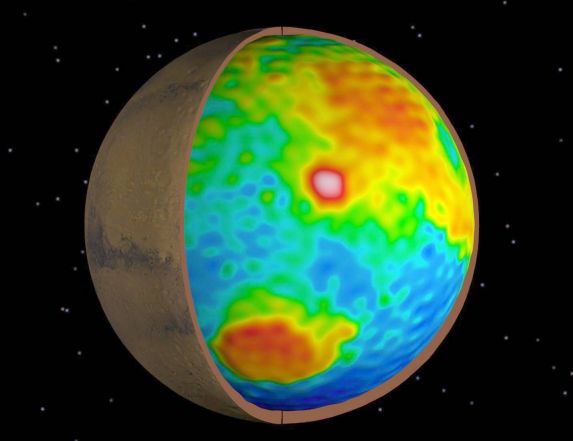Inside Mars

Explanation:
What's
inside
Mars?
From orbit, the Mars Global Surveyor (MGS)
spacecraft
has recorded detailed images of the red planet
since
July 1997.
Still, its cameras can not look beneath the surface.
But minute changes in the spacecraft's orbital velocity are
produced by variations in the planet's gravitational field, and
these changes are related to interior density fluctuations.
When the subtle orbital changes were measured using
MGS
radio science
experiments and
combined with the accurate Mars Orbiter Laser Altimeter
topographical data,
researchers were able to produce a map of the
thickness of the
martian crust.
In this color cut-away diagram of the results, red colors correspond
to thin and blue to thick areas of the crust which
rides above the
martian mantle.
From the global map,
the crust is seen to range from about 20
to 50 miles thick and shows a dramatic difference between the
generally thinner northern hemisphere to thicker southern
hemisphere crust.
For the newly formed planet, the thin crust would have promoted
rapid cooling and may have given rise to a large
northern ocean
on early
Mars.
Authors & editors:
Robert Nemiroff
(MTU) &
Jerry Bonnell
(USRA)
NASA Web Site Statements, Warnings,
and Disclaimers
NASA Official: Jay Norris.
Specific
rights apply.
A service of:
LHEA at
NASA /
GSFC
& Michigan Tech. U.

